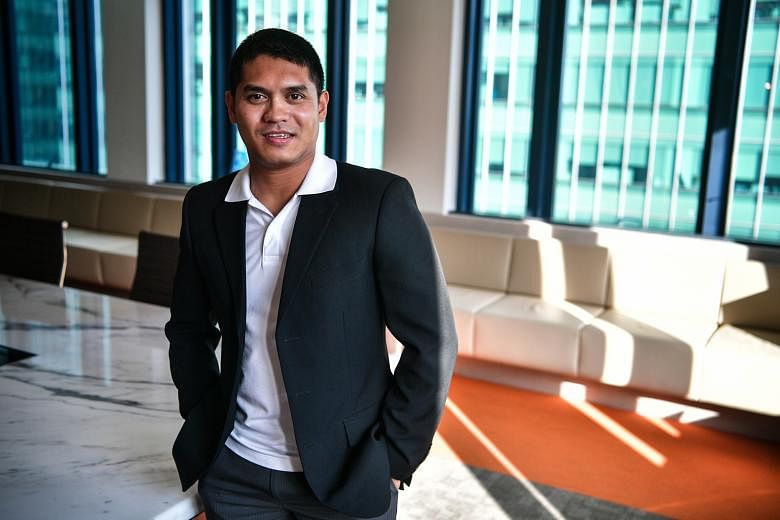Back in 2001, when Mr Mohamed Noordin Yusuff Marican, 38, started his career in cyber security, it was still a little-known field.
"No one really wanted to hear about cyber security," recalls Mr Noordin. "But I knew that as technology evolved, cyber security would just get bigger."
He was spot on. Today, cyber attacks are on the rise, prompting businesses and governments to sit up and pay attention.
And his career has soared alongside. Mr Noordin is now the associate director of cyber security at professional services firm KPMG.
The CFE has identified cyber security as an area of great potential, and Singapore has been rolling out new initiatives to defend itself against attacks. These include a national cyber security strategy that lays out the country's long-term approach to securing its cyberspace and critical infrastructure, and a national Cyber Security Agency.
Cyber security has grown by leaps and bounds since Mr Noordin's teenage years, when he would stay up till 3am dabbling with security tools and techniques to the confusion of family and friends who did not see the potential of the field.
Now, it is hard to deny its importance. Opportunities abound, and people have been flocking to make a career in it.
Mr Noordin helms a 100-man team whose responsibilities include looking for new ways to help clients combat cyber attacks.
He is also KPMG's deputy chief information security officer, which involves helping to prevent, detect and respond to cyber threats against the firm. And with cyberspace a major hunting ground for criminals, cyber security professionals cannot rest on their laurels.
Mr Noordin notes how cyber attacks have grown more sophisticated, and new technologies - like the Internet of Things, which refers to devices and networks being connected to allow them to collect and share data - have created new vulnerabilities.
The industry will need more people with the skillsets to protect critical information such as personal and financial data.
With cyber criminals constantly finding new methods of attack, skills upgrading will be crucial, says Mr Noordin, adding: "I'm excited as this area scales up and gets more and more interesting."
What people like Mr Noordin want to know from the CFE: How can someone with an established career in cyber security keep abreast of the latest developments in a rapidly changing field? What other aspects of the digital economy can workers like him tap, and how can they share their know-how?
Nur Asyiqin Mohamad Salleh
MR BILL CHANG, Singtel country chief officer of Singapore and CEO of group enterprise, and the co-lead of the CFE's sub-committee on Future Jobs and Skills, says:
Cyber security is a fast-evolving landscape due to the changing tactics and tools that the cyber attackers use.
For cyber security defenders, this can be a very exciting field to learn in, and more importantly, put their knowledge and skills into practice, to continuously sharpen them.
There are a number of industry- led programmes to help convert professionals in the IT services sector to the cyber security field. These include the Singtel Cyber Security Associates and Technologists programme with the Info-communications Media Development Authority (IMDA).
There are also a number of key conferences like the GovWare event, which features many global "thought" leaders in cyber security that one can attend to build their interest and passion in.
I hope to see our institutes of higher learning offer more modular courses, continual education or training, and even cooperative study programmes with employers to train the cyber security professionals in their workplace.
Digitalisation will affect most companies in all sectors.
Our IT workforce has to acquire new digital skills like advanced analytics, cloud and cyber security, and complement these with their domain expertise and knowledge of key industries such as financial, advanced manufacturing, and healthcare so that they can help play a role in the digital transformation of their companies.
With their digital know-how, they can help mentor start-ups, contribute their knowledge and experience as adjunct professors and even shape the curriculum in schools with their industry orientation.

